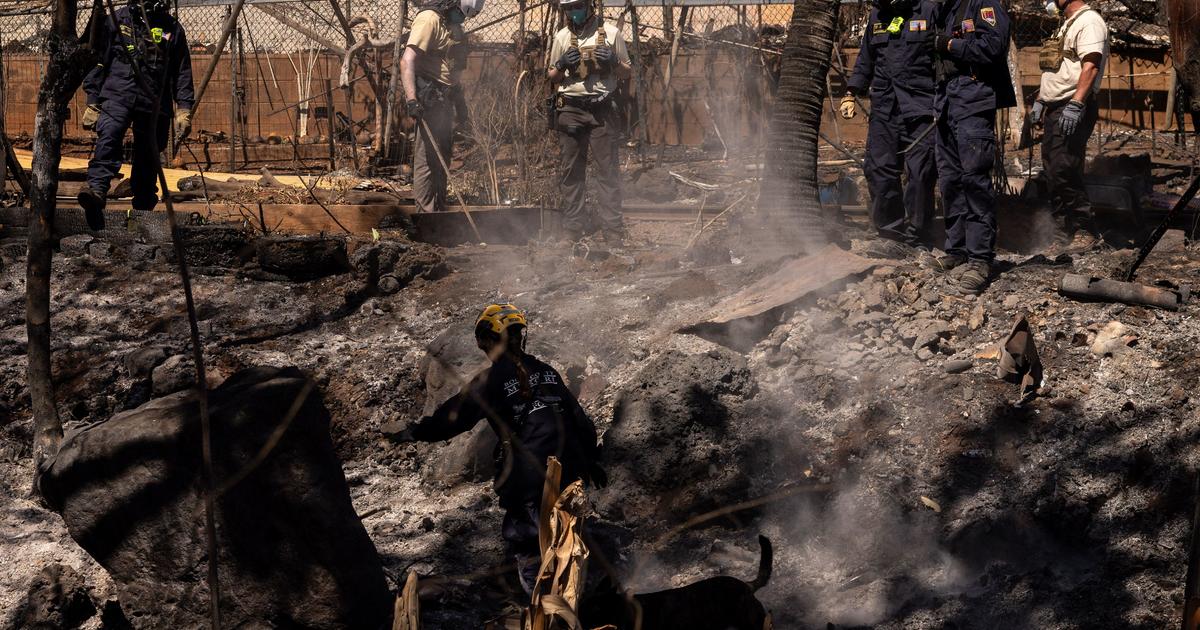Why does it feel like making a living today is a herculean task? You work long hours, juggle multiple responsibilities, and yet, financial security seems like a distant dream. If you’ve ever wondered why the modern world makes earning a decent living so difficult, you’re not alone. From skyrocketing living expenses to shifting job market dynamics, countless factors make today’s financial landscape challenging.
Understanding these hurdles is the first step toward finding solutions—not just for ourselves but for future generations too. Let’s dive into the root causes of this modern dilemma and explore how it affects every aspect of our lives.
The Rising Cost of Living
One of the biggest culprits? The ever-increasing cost of simply existing. Inflation has taken a toll on everything, from your morning coffee to monthly rent. Essentials like groceries, transportation, and utilities have all become significantly more expensive over the years, and the numbers don’t lie.
Housing Costs Are Through the Roof
Take housing, for example. Home prices have skyrocketed, and renting isn’t any better. For many, paying 30% or more of their income on housing has become the norm. Affordable housing is no longer just scarce—it’s practically a unicorn.
Healthcare and Education: The Twin Monsters
Add healthcare and education into the mix, and it’s no wonder wallets are empty. A single trip to the doctor or paying off a semester of college can drain your savings. These rising costs aren’t just annoying; they’re downright crippling for many families.
Stagnant Wages
While the cost of living soars, wages seem to be stuck in quicksand. Sure, some industries offer competitive pay, but for the majority, income growth hasn’t kept up with inflation.
The Wage Gap Reality
Workers in service-oriented or gig jobs often find themselves stuck in low-paying positions. And even in well-paying sectors, gender and racial wage gaps persist, further compounding the problem.
The Gig Economy’s Empty Promises
What about the gig economy? While it promises flexibility and freedom, it often delivers instability and low wages. Freelancers and gig workers frequently lack access to basic benefits like health insurance or retirement plans.
The Burden of Debt
Debt has become a modern-day ball and chain. Whether it’s student loans, credit card balances, or mortgages, millions are drowning in financial obligations they can’t escape.
Student Loans: A Never-Ending Cycle
For millennials and Gen Z, student loans are a particularly heavy burden. Graduating with tens of thousands of dollars in debt means starting life already in a financial hole, making saving or investing nearly impossible.
Credit Card Traps
Credit cards, while convenient, often lure people into spending beyond their means. The high-interest rates create a vicious cycle, making it hard to pay off balances and escape financial stress.
Shifting Job Market Dynamics
The job market isn’t what it used to be. The days of stable, long-term employment with benefits are fading fast, replaced by a landscape shaped by automation, outsourcing, and short-term contracts.
Automation: The Silent Job Killer
Machines are replacing humans in many industries, from manufacturing to customer service. While this boosts productivity, it leaves many workers scrambling to adapt to a rapidly changing job market.
Global Competition
Outsourcing jobs to countries with lower labor costs has further squeezed opportunities in many developed nations. Competition isn’t just local anymore—it’s global.
Lack of Financial Literacy
Most of us weren’t taught how to budget, save, or invest. Schools rarely include financial education in their curricula, leaving young adults ill-prepared to manage their money.
Predatory Practices
Add to this a financial system rife with predatory practices, from payday loans to misleading credit offers, and it’s easy to see why so many people feel trapped.
Breaking the Cycle
Understanding the basics of personal finance—like building an emergency fund, avoiding high-interest debt, or investing wisely—could help many break free from financial hardship.
Societal Expectations and Pressures
It’s no secret that societal expectations add fuel to the financial fire. We live in a world where people are constantly chasing an image of success that’s often far out of reach. Social media and cultural norms play a significant role in creating these pressures.
The “Keeping Up” Culture
Ever heard the phrase “keeping up with the Joneses”? These days, it’s more like keeping up with Instagram influencers. People feel pressured to showcase lifestyles filled with luxury vacations, designer clothes, and the latest gadgets. Even if you’re financially struggling, the pressure to maintain appearances can lead to overspending or debt.
The Social Media Effect
Platforms like Instagram and TikTok flood us with polished versions of other people’s lives, making it easy to feel like you’re falling behind. The cost of keeping up with these trends isn’t just financial—it’s emotional too, leading to stress and dissatisfaction.
The Real Cost of Consumerism
The drive to buy, upgrade, and replace leads to unsustainable spending habits. A consumer-driven society thrives on making you feel like you need more, but this endless pursuit can leave your bank account drained and your mental health in shambles.
The Gig Economy Reality
The gig economy is often painted as a beacon of hope for modern workers, offering flexibility and independence. But dig a little deeper, and the reality isn’t always so rosy.
The Lack of Benefits
One of the biggest downsides of gig work is the lack of benefits. Most gig workers don’t receive health insurance, paid leave, or retirement contributions. This means they’re left to shoulder these costs alone, which can be overwhelming.
Unpredictable Income
Freelancers and gig workers also face fluctuating income. One month might be great, but the next could be a financial drought. This uncertainty makes budgeting and saving incredibly challenging.
Burnout is Real
The hustle culture tied to gig work can lead to burnout. Many people in the gig economy juggle multiple jobs just to make ends meet, leaving little time for rest or personal life.
The Decline of Union Power
Unions used to be a powerful force for protecting workers’ rights, ensuring fair wages, and fighting for better working conditions. However, the decline in union membership has significantly weakened workers’ bargaining power.
What Unions Did Right
In their heyday, unions helped secure benefits like paid leave, pensions, and fair wages. They created a safety net for workers, ensuring their basic needs were met.
The Modern Landscape
Today, union membership is at historic lows, particularly in the private sector. This decline has left many workers without a collective voice, making it harder to demand better pay or push back against unfair practices.
The Consequences
The erosion of union power has contributed to wage stagnation and growing income inequality. Without the backing of a union, workers often feel powerless to negotiate for better conditions.
Mental Health Challenges
Financial stress doesn’t just hurt your wallet—it also takes a toll on your mental health. The constant worry about making ends meet can lead to anxiety, depression, and even physical health issues.
Stress from Financial Insecurity
Living paycheck to paycheck creates a cloud of uncertainty that’s hard to shake. Will you be able to pay the bills this month? What if an emergency comes up? These questions keep many people up at night.
The Productivity Impact
Financial struggles can also affect your work. It’s hard to focus and perform well when you’re worried about money. This, in turn, can hurt your career prospects and create a vicious cycle.
Lack of Affordable Mental Health Care
Ironically, while financial stress often necessitates mental health support, accessing that support is expensive. The high cost of therapy or counseling prevents many from getting the help they need.
Generational Divide
You’ve probably heard it before: “Back in my day, we worked hard and got ahead.” But the truth is, making a living today is much harder than it was for previous generations.
Boomers vs. Millennials and Gen Z
Baby boomers often had access to affordable housing, education, and healthcare—luxuries that younger generations can only dream of. Meanwhile, millennials and Gen Z face higher costs and stagnant wages, creating a vastly different financial landscape.
Generational Wealth Disparities
Older generations accumulated wealth through home ownership, pensions, and stable jobs. In contrast, younger people are burdened by student debt and rising rent, leaving little room to save or invest.
Misunderstanding the Struggle
The generational gap often leads to misunderstandings. Older generations may not fully grasp how much the financial world has changed, leading to the perception that younger people are “lazy” or “entitled.”
Role of Government Policies
Government policies play a huge role in shaping the financial landscape, and unfortunately, many current systems seem to favor the wealthy rather than the average worker.
Tax Systems Favoring the Rich
Tax loopholes and policies often allow corporations and wealthy individuals to pay less than their fair share. Meanwhile, middle- and low-income workers bear the brunt of the tax burden.
Inadequate Social Welfare Programs
Social safety nets like unemployment benefits, affordable housing programs, and healthcare support are often underfunded or poorly designed. This leaves many struggling to get the help they need.
Impact on Job Creation
Government policies also affect job markets. A lack of investment in infrastructure or education can stunt job growth, while trade policies can lead to outsourcing and job losses.
Global Crises and Uncertainty
We can’t ignore the role of global events in making it harder to make a living. Pandemics, climate change, and geopolitical tensions all contribute to economic instability.
Pandemic Fallout
The COVID-19 pandemic was a wake-up call for many. Job losses, business closures, and disrupted supply chains revealed just how fragile the global economy really is.
Climate Change and Its Costs
Natural disasters, rising sea levels, and extreme weather events aren’t just environmental issues—they’re economic ones too. Industries like agriculture and tourism are particularly vulnerable, creating uncertainty for workers.
Geopolitical Conflicts
Wars, trade disputes, and political instability also create ripples in the global economy. Rising costs of goods, disrupted trade routes, and uncertainty about the future all add to financial stress.
Tips for Coping with Financial Challenges
While the challenges are daunting, there are ways to navigate today’s tough financial landscape. Here are a few strategies to help you stay afloat:
- Educate Yourself
Learn the basics of personal finance, like budgeting, saving, and investing. There are plenty of free resources online to help you get started. - Diversify Your Income
Consider side hustles or passive income streams to supplement your earnings. Even small amounts can add up over time. - Cut Unnecessary Expenses
Evaluate your spending and cut back on non-essentials. It’s not easy, but small sacrifices can lead to big savings. - Seek Support
Don’t be afraid to reach out for help. Local community organizations, government programs, and even friends or family can provide assistance when needed.
Conclusion
Making a living today is undeniably harder than it was in the past. From rising costs to stagnant wages, debt, and a rapidly changing job market, the challenges are numerous. But understanding these hurdles is the first step toward overcoming them.
Whether it’s through better financial education, smarter policies, or community support, there’s hope for change. It won’t be easy, but with effort and collaboration, we can build a future where making a living isn’t such an uphill battle.
FAQs
- Why are wages not keeping up with inflation?
Wages have stagnated due to factors like weakened unions, global competition, and automation, while inflation continues to drive up the cost of living. - How has the gig economy affected job security?
The gig economy offers flexibility but often lacks benefits, stability, and adequate pay, leaving workers vulnerable. - What role does education play in financial struggles?
A lack of financial education leaves many unprepared to manage money, while rising tuition costs create crippling student debt. - Are younger generations worse off financially?
Yes, due to higher living costs, stagnant wages, and significant debt, younger generations face more financial challenges than their predecessors. - What can governments do to improve living conditions?
Governments can create fairer tax systems, invest in social programs, and develop policies that support job creation and wage growth.
Is this content hitting the mark for you? If so, consider supporting my work—buy me a virtual coffee! 




